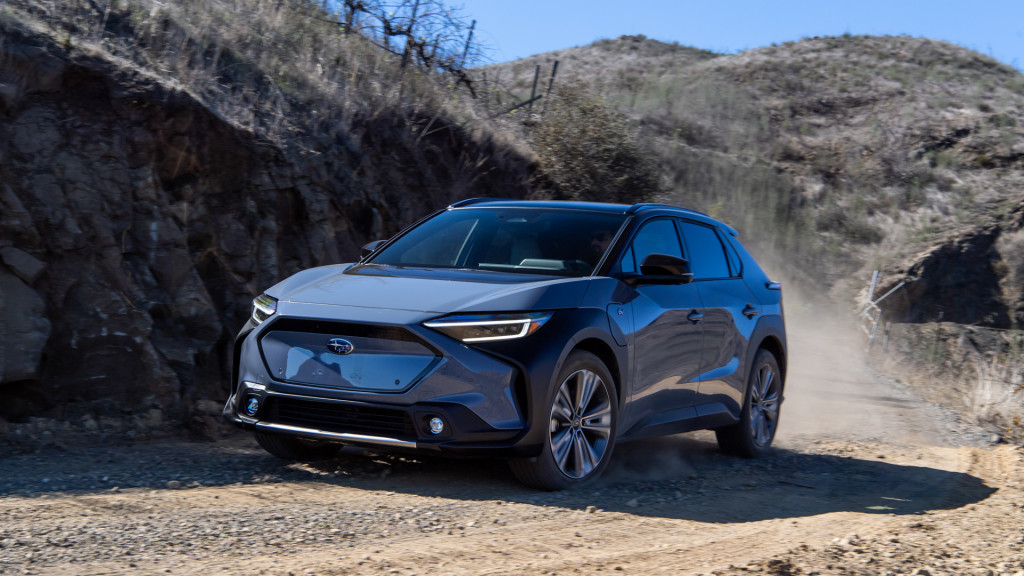Recent actions in two states have solidified a bloc of EV support throughout most of the East Coast.
New Jersey Governor Phil Murphy on Wednesday announced plans to adopt California’s 2035 end date for new internal-combustion cars aside from plug-in hybrids. This was codified in one of three executive orders signed by Murphy Wednesday, which outline policies that include 100% clean-energy use by 2035, and greater energy efficiency in the state’s building sector.
“These bold targets and carefully crafted initiatives signal our unequivocal commitment to swift and concrete climate action today,” Murphy said in a statement.
2023 Jaguar I-Pace
The executive order directs the New Jersey Department of Environmental Protection to formally adopt the stricter emissions rules needed to meet the 2035 goal by the end of the year. Environmental advocates were quick to note that the clock is ticking.
“The longer we wait to adopt this rule, the lesser our chances are at securing more EV options in the state, and the harder to achieve the goal of 100% of new sales by 2035,” Anjuli Ramos-Busot, director of the NJ Sierra Club, said in a statement.
New Jersey joins a number of East Coast states that have finalized, or are working to finalize, emissions standards that follow California’s 2035 timeline, which are collectively referred to as “Advanced Clean Cars II” standards, the Sierra Club noted. This East Coast bloc joins a West Coast contingent of EV-friendly states encompassing California, Washington, and Oregon.

2023 Subaru Solterra
Other states in that cohort include New York, Connecticut, Massachusetts, Maine, Vermont, and Virginia, which just successfully rejected a challenge to its Clean Car standards, keeping it on track to tighten emissions standards in the coming years.
A Democrat-led state senate committee last month threw out a slate of Republican proposals aimed at repealing Virginia’s adoption of California standards, according to the Virginia Mercury.
These states are getting hard to ignore, and with states in the middle of the country now stepping in—like Minnesota, which is now also a Clean Cars state—it’s easier for automakers to simply plan, on a national level, for the vehicles these standards will require.
It should be noted that not everyone will profess regulation as the solution for EV adoption. Three out of the five U.S. states with the most EVs haven’t had a mandate for them, according to a 2021 study. Yet it’s unclear whether that sales growth will continue without mandates, which also serve as a clear sign to automakers to continue producing more EVs.
